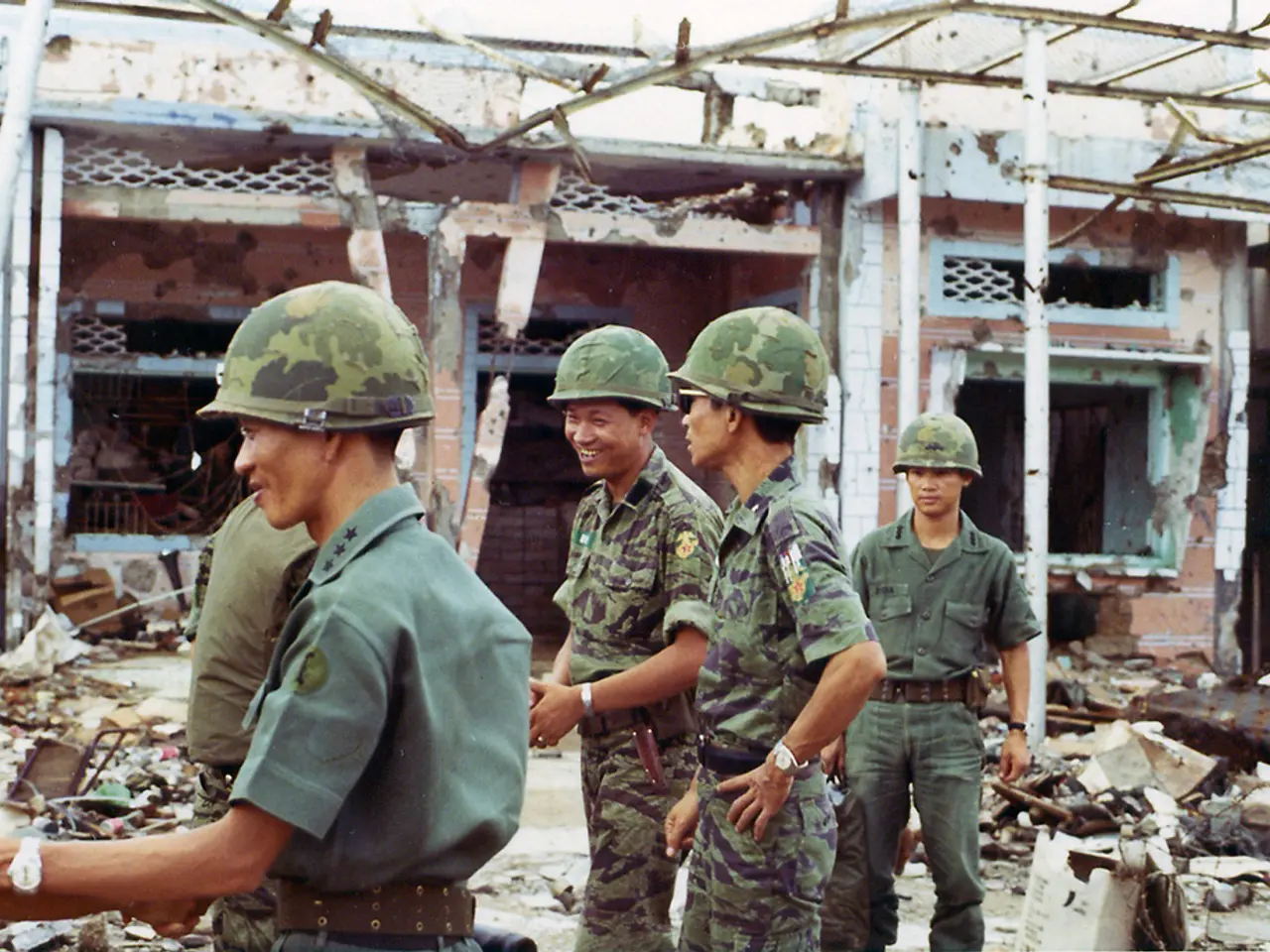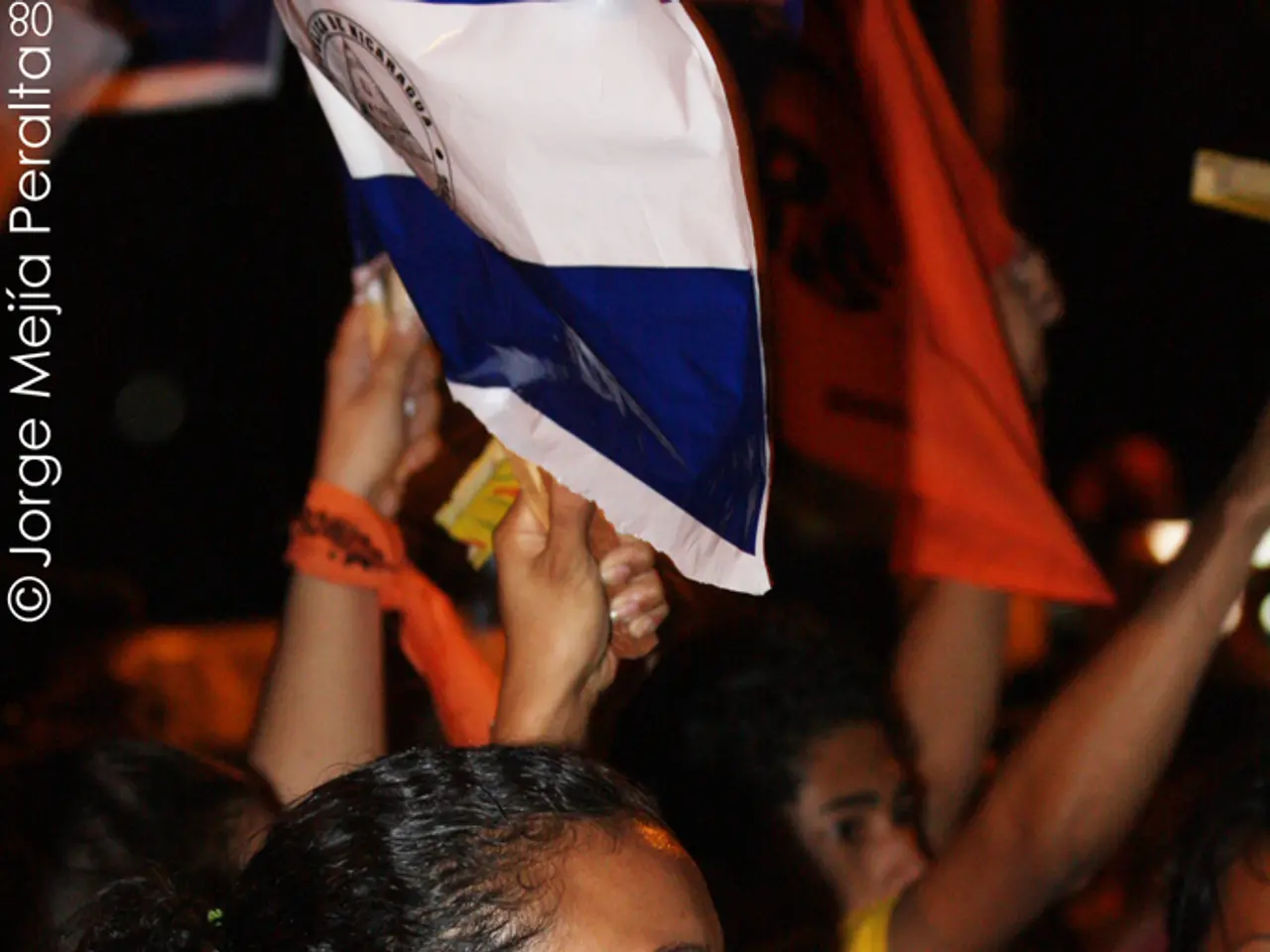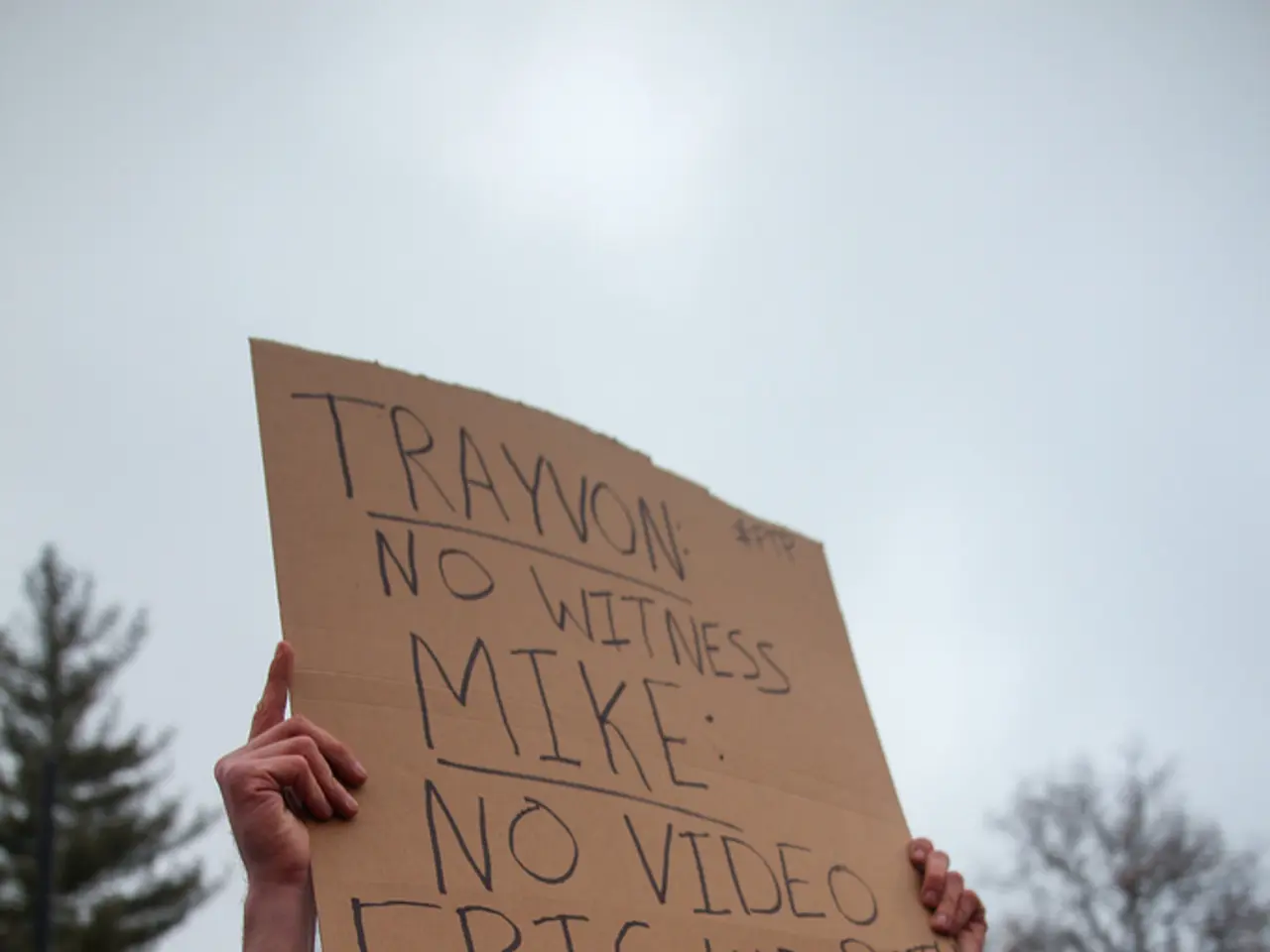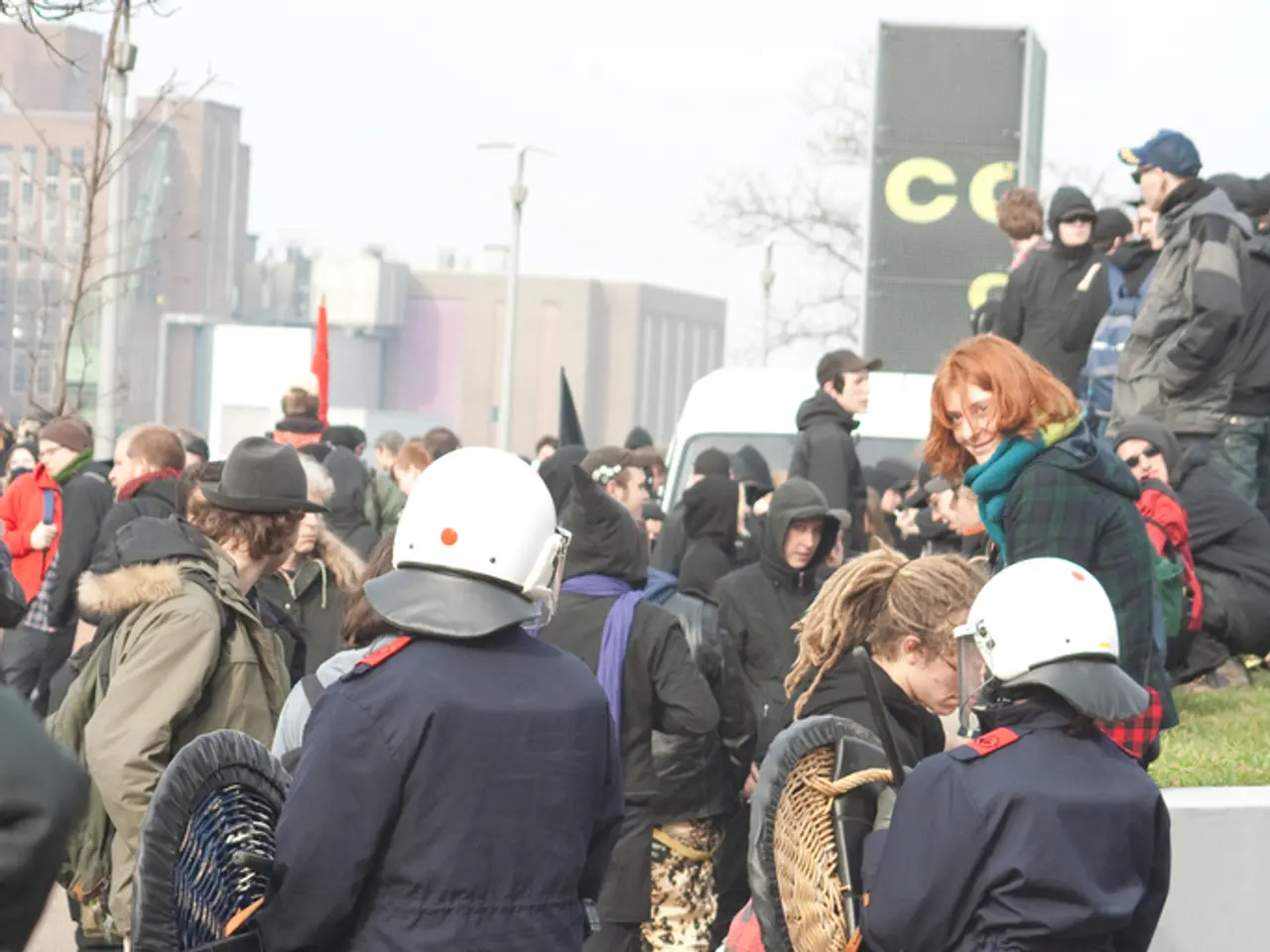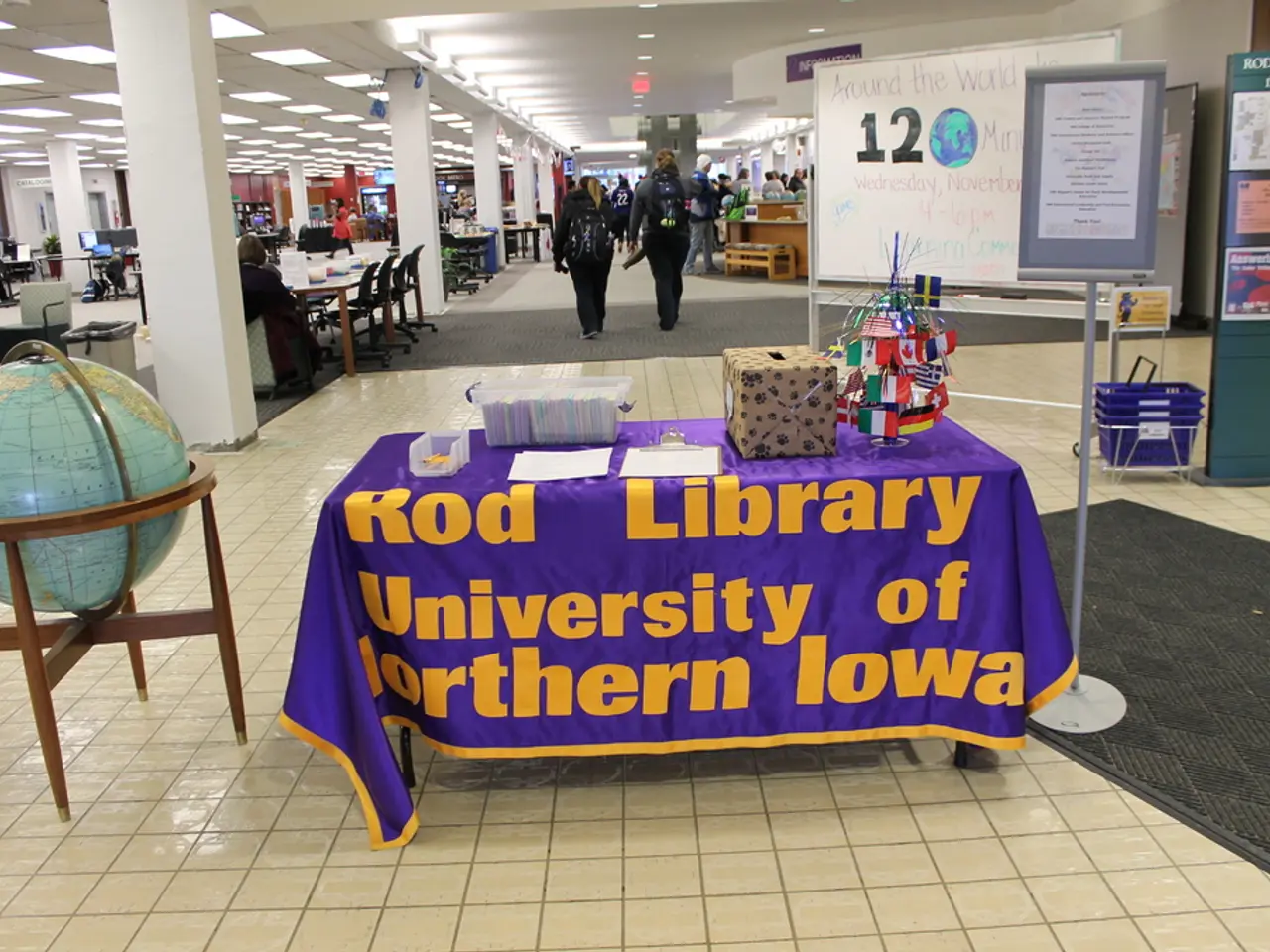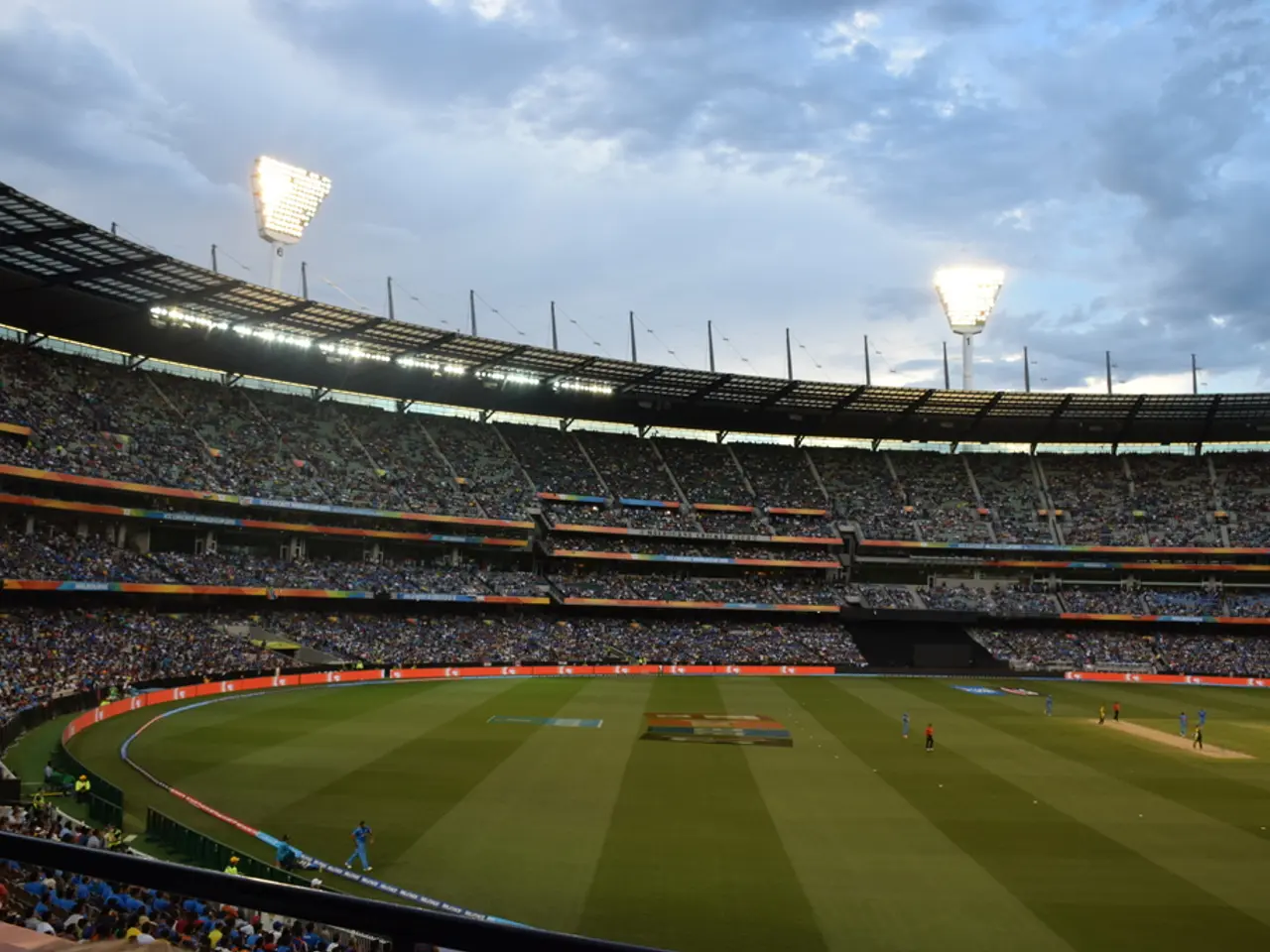Mothers frantically searching for lost children at the mass grave in al-Nasser hospital during Gaza conflict
In the embattled region of Gaza, al-Nasser Hospital has become a tragic symbol of the ongoing conflict. Once a refuge for 10,000 Palestinians during a siege, it is now a chilling reminder of the devastating consequences of war.
Hundreds of mothers have flocked to the hospital, hopeful of finding their children among the victims. Hundreds of Palestinians were buried within the hospital's perimeter by Israeli forces, as revealed by rescue workers. The total number of bodies found has increased to 324, with over 300 exhumed since the withdrawal of Israeli forces.
The gruesome discoveries have raised serious concerns about grave violations of international human rights law and international humanitarian law, as stated by the UN Human Rights Office. The smell of death is palpable at the hospital, and the sight of bodies with hands tied behind their backs has left an indelible mark on the community.
On the first two days of the grave discovery, 140 bodies were found. Some were found decapitated and with skin and organs removed, according to the Gaza government's media office. The emotional toll on the community is immense, with mothers wrapping their dead sons in shrouds and accompanying them to the cemeteries at al-Nasser Hospital.
Mothers are meticulously inspecting the corpses for identifying details such as clothing or footwear. However, some exhumed bodies are incomplete or unrecognizable, adding to the heartache of the bereaved.
The Israeli army denies burying Palestinian bodies, claiming they were only exhuming remains while searching for Israeli hostages. However, this assertion contradicts the evidence found at the site.
The conflict in Gaza has involved numerous Israeli military operations, including airstrikes and ground invasions. These operations have resulted in significant casualties and damage to infrastructure, including hospitals. The World Health Organization (WHO) has called for the protection of medical facilities in Gaza, including the Nasser Medical Complex and Al-Amal Hospital, to ensure they remain safe from attacks.
In the midst of this tragedy, local journalist Moatasim Mortaja continues to document the events unfolding at al-Nasser Hospital. Despite the emotional distress, his camera captures the raw reality of the situation. Journalists filming at the hospital are experiencing emotional distress, with their cameras losing focus due to shaking hands.
One mother, a woman in gray, found her son by recognizing a single essential detail. Her story is a testament to the resilience of the human spirit in the face of unimaginable tragedy.
The ongoing conflict has led to a severe humanitarian crisis, with thousands killed and injured, and many more struggling to access basic necessities like food and medical care. The situation is exacerbated by the challenges faced by aid organizations attempting to distribute aid in Gaza.
As the world watches, the people of Gaza continue to endure unspeakable hardships. The discovery of mass graves at al-Nasser Hospital serves as a stark reminder of the urgent need for peace and justice in the region.
- The discovery of mass graves at al-Nasser Hospital, amidst the ongoing conflict in the Middle East, has raised concerns about war crimes and human rights violations, as reported by the United Nations Human Rights Office.
- The tragic events unfolding in Gaza, marked by the discovery of graves containing 324 bodies and the emotional toll on the community, have necessitated the intervention of international organizations like the World Health Organization to protect medical facilities and ensure peace and justice in the region.
